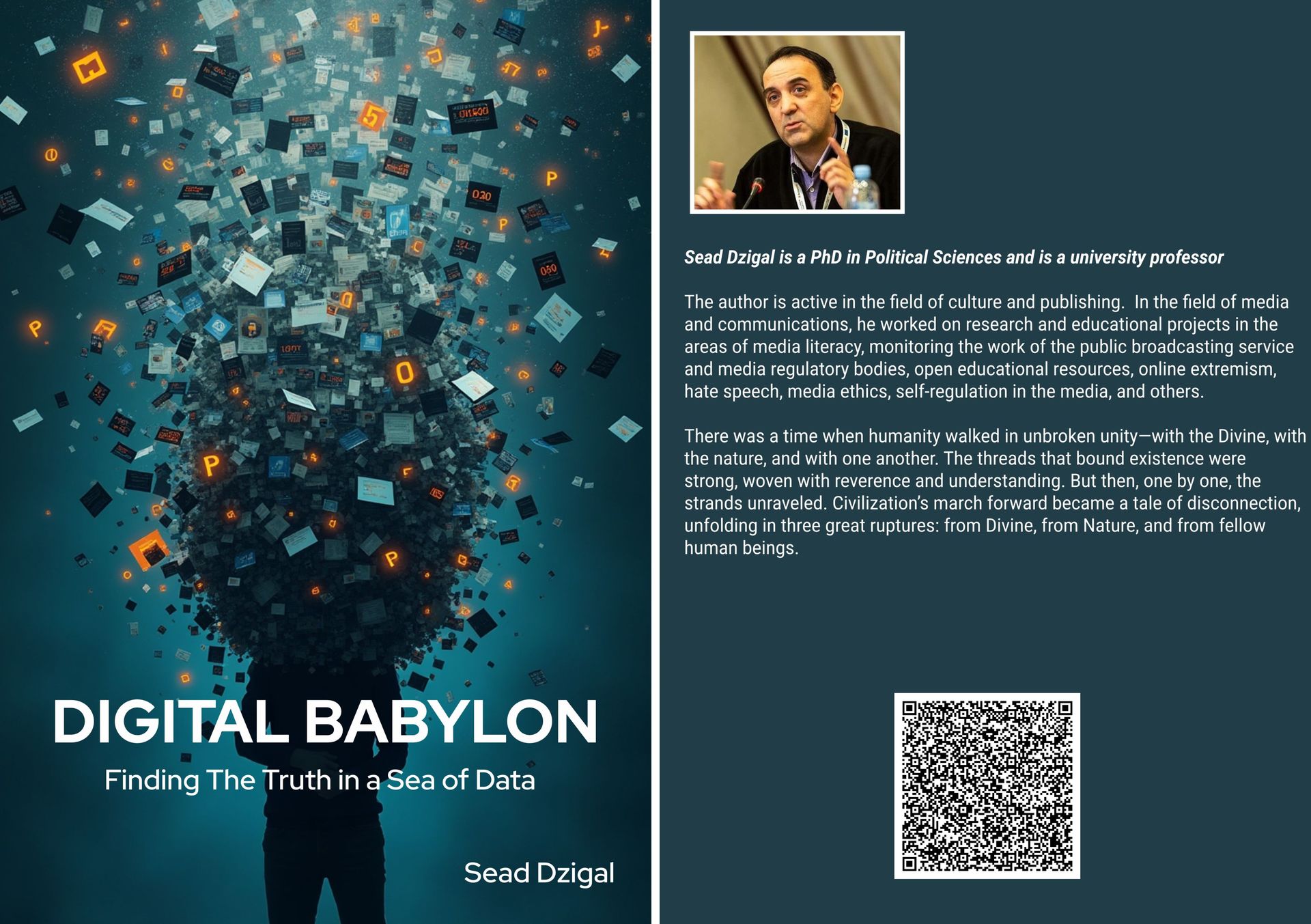We are witnessing a moment where the promises of progress collide with the deeper questions of meaning, connection, and identity. In his new book Digital Babylon, author and professor Sead Dzigal delivers a powerful meditation on the fractures that define our modern existence.
Below is the full introduction from the book, published in 2025:
DIGITAL BABYLON
Sead Dzigal, AI Now, 2025
There was a time when humanity walked in unbroken unity, with the Divine, with the nature, and with one another. The threads that bound existence were strong, woven with reverence and understanding. But then, one by one, the strands unraveled. Civilization’s march forward became a tale of disconnection, unfolding in three great ruptures: from Divine, from Nature, and from fellow human beings.
The first disconnection was from the divine, a rupture that finds its earliest allegorical form in the story of the Tower of Babel. Ancient legend and holly books tell of a people who sought to build a tower that reached heaven, not to worship but to avoid subjugation, to claim dominion over their own fate. The arrogance of such an act was not in the construction itself but in the intention—to replace divine wisdom with human ambition. Their tongues were scattered, their unity shattered. This, however, was only the beginning. The philosopher Friedrich Nietzsche, proclaimed the culmination of a slow drift toward secularism, a world where faith was replaced by rationalism and material pursuits. The first fracture had widened.

The second disconnection came with the rise of industrialization, when humanity turned from being part of nature to its master. In pre-modern societies, nature was sacred, a force to be revered, feared, and understood. But with the Enlightenment and the mechanical age, the earth became something to exploit. This transformation is starkly illustrated in William Wordsworth’s words: “Getting and spending, we lay waste our powers; Little we see in Nature that is ours”. The natural world, once the source of mystery and meaning, was reduced to mere resource, a casualty of progress.
The third and final disconnection is the most recent and perhaps the most paradoxical. In the digital age, we have never been more connected, yet we have never been more alone. Just as the Babylonians sought to escape divine reckoning through their tower, we now erect digital towers, virtual citadels that promise escape from the constraints of human limitation. Social media and technology promise limitless connection, yet they fragment us, pulling us into isolated echo chambers. The psychologist Sherry Turkle, in Alone Together, observes that we are “always connected, but rarely in conversation.” Our social disconnection mirrors Babel in a modern form: we speak in a thousand tongues, tweets, posts, emojis, but we struggle to truly understand. In the past those in power controlled us with stories and distractions they were creating. Now with social media and AI they give us tools to create our own stories and distractions with which they can control us. The problem is not so much the artificial intelligence that is being used, but the larger issue of using AI to create artificial reality and normalize it in its replacing of reality. Artificial intelligence is just a tool to advance the new historic era of living in artificial reality where everything is commodified, from tomato to your dreams, and then absorbed into the matrix of transactional universe where everything can be exchanged and purchased. We live in a time where we are all slaves of the industrial and digital reproductions of our desires.
Each disconnection marks an attempt to transcend our perceived limits, yet in doing so, we lose something fundamental. The paradox of progress is that as we build higher, we risk losing sight of what was once below. To mend these fractures, perhaps we must look not forward, but inward—to reclaim faith, to honor the earth, and to truly see one another once more.
From the Introduction to “Digital Babylon”, (2025), by author Sead Dzigal.